The cost of AI in healthcare is more than just the initial price. It takes time, expertise, and changes in how care is delivered. Many healthcare providers feel the need to keep up with healthcare trends. But adding Artificial Intelligence in hospitals is not simple. It needs clear goals, strong leadership, and reliable systems.
For healthcare development specialists, knowing these costs is important. This includes development, integration, compliance, maintenance, and training. Healthcare app development is one clear example. It uses AI tools to improve efficiency and patient care.
By automating admin work, AI can handle up to 45% of routine tasks. This lowers healthcare costs. AI helps doctors create better treatment plans, improve patient outcomes, and speed up medical data analysis. This leads to early diagnosis and better decision-making.
For healthcare providers, AI is now essential. With the right strategy, the cost of AI in healthcare becomes a smart investment that improves care, efficiency, and the patient experience.
Why Healthcare Organizations Are Investing in AI

It’s no longer just about being future-ready — it’s about survival.
Hospitals today face big challenges: more patients, staff burnout, old systems, and pressure to deliver better results at lower costs. Traditional tools can’t keep up.
AI in healthcare is stepping in — not to replace people, but to make their work faster and smarter.
Healthcare organizations are now turning to AI because they can’t afford to ignore it. AI helps:
- Automate routine admin work
- Speed up diagnosis
- Use hospital resources better
- Predict patient risks hours before problems occur
But it’s not only about improving treatment. AI also helps healthcare leaders run hospitals more efficiently. It can:
- Cut costs and waste
- Shorten billing cycles
- Improve overall performance
- Boost revenue with remote care, predictive analytics, and healthcare app development
In today’s tough healthcare market, AI is a must-have. Those who invest early don’t just improve patient care — they secure their future.
Key Cost Components of AI in Healthcare
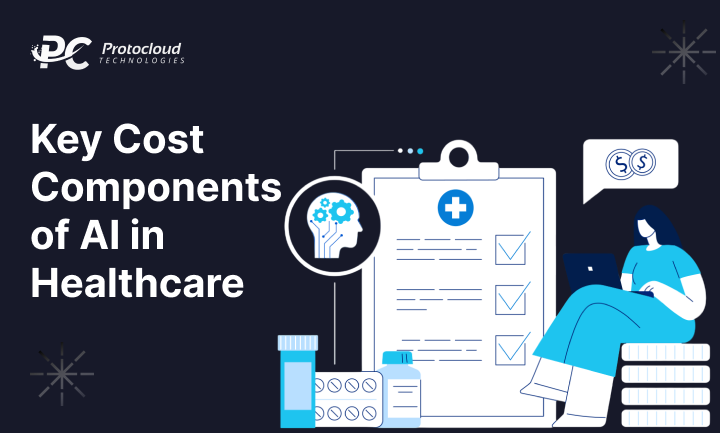
AI costs more than just the software. To make it work well, you need to plan for every step — from setup to maintenance.
1. Development and Customization
Building an AI healthcare tool takes research, model training, and testing. Customization adds more cost because every hospital has unique needs.
You need experts, compliance checks, and multiple testing rounds to ensure accuracy.
- Basic AI tools cost between $50,000 and $500,000
- Advanced tools like diagnostics or robotics can go beyond $10 million
- Custom AI models take 6–12 months and cost 30–40% more than ready-made ones
This phase often includes healthcare app development to make AI-powered features easily accessible for doctors and patients.
2. Infrastructure and Integration
AI needs strong technology support — powerful servers, secure databases, and reliable cloud storage.
Integrating AI with your current system may also require upgrades.
- Cloud computing for AI costs $100,000–$1 million per year
- System upgrades can add 20–30% to initial setup costs
Smooth integration (like connecting with EHR systems) ensures AI works fast and efficiently.
3. Regulatory and Compliance
Healthcare has strict rules. AI must meet standards like HIPAA and GDPR to protect patient data.
This means you’ll need regular audits, legal reviews, and strong security practices.
- Compliance audits cost $20,000–$200,000 per year
- Security and compliance updates may reach $1 million per year
- Violations can lead to fines of over $1.5 million per issue
Following compliance rules builds patient trust and ensures smooth AI adoption.
4. Operations and Maintenance
AI systems need regular updates to stay accurate and safe. Maintenance includes data checks, software updates, and cybersecurity.
- Maintenance usually costs 15–25% of the initial setup each year
- With compliance and security, it can go up to 30–50%
- Cybersecurity alone costs $50,000–$250,000 per year
Routine maintenance keeps your AI tools secure, reliable, and effective — especially for healthcare app development.
5. Training and Team Adaptation
AI tools are only useful when people know how to use them. Training doctors and admin staff is essential.
- Training costs about $5,000–$10,000 per employee
- Fixing AI bias and improving models adds 10–20% to the total budget
Well-trained teams make AI adoption smooth and efficient. It also helps build confidence in new healthcare technologies and app development solutions.
Hidden Costs of AI Implementation
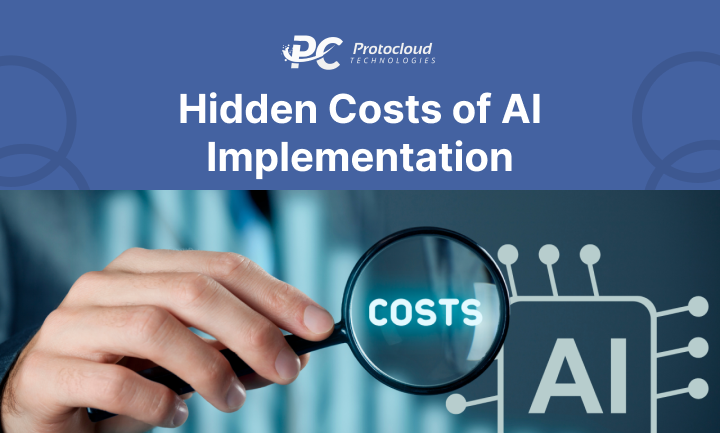
Beyond direct costs, AI in healthcare brings hidden expenses that impact long-term success. These costs add complexity and can strain budgets for AI adoption in healthcare.
Studies show that hidden costs of AI implementation — including compliance, cybersecurity, and workforce training — can add 30–50% to total costs. Planning for these is essential for success.
1. Data Privacy and Security Challenges
Protecting patient information is critical for AI implementation in healthcare. Strong healthcare data security, encryption, and compliance with HIPAA and GDPR add costs.
These safeguards are vital. They protect patients and make healthcare app development safer.
- Upgrading cybersecurity systems.
- Encrypting sensitive data.
- Continuous threat monitoring.
These investments strengthen trust in healthcare technology and AI systems.
2. Bias and Ethical Considerations
Bias in AI can cause flawed results and unfair care. This is a challenge for clinical AI systems.
Organizations need ongoing AI bias mitigation and regular checks of AI workflows.
- Frequent model testing and updates.
- Transparent design practices.
- Ethical oversight.
These actions support healthcare innovation and improve patient safety.
3. Legal and Liability Issues
Mistakes in AI recommendations may cause malpractice claims in healthcare. This creates legal and liability issues in healthcare.
Hospitals must plan for risk management and liability coverage.
- Legal compliance reviews.
- Risk assessments.
- Liability insurance.
These costs are part of AI regulatory expenses in healthcare.
4. System Downtime and Transition Costs
Integrating AI with existing systems can cause downtime. This is part of the AI system integration and legacy system integration challenges.
Downtime increases healthcare operational costs and needs support.
- Backup plans for system downtime.
- IT support during transitions.
- Continuous monitoring for performance.
Proper planning reduces disruption and ensures smooth healthcare app development integration.
5. Patient and Provider Acceptance Challenges
Trust is key to AI adoption in healthcare. Both patients and providers need reassurance.
Training, awareness programs, and intuitive interfaces improve acceptance and adoption.
- Workforce training in healthcare.
- Awareness and education campaigns.
- User-friendly AI tools.
Good design makes AI more effective and supports healthcare automation.
Major Factors Affecting the Cost of Implementing AI in Healthcare
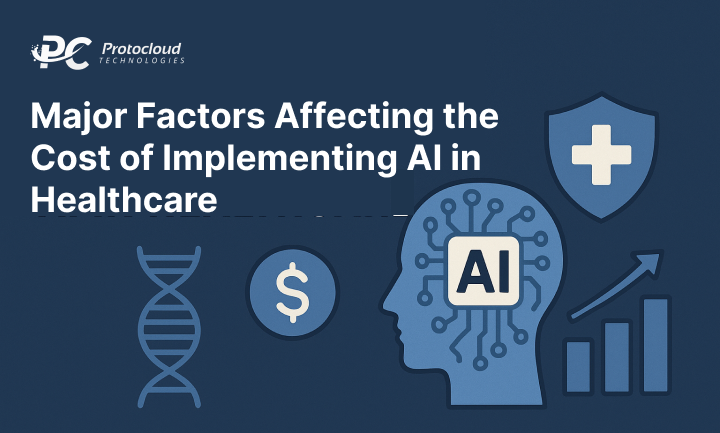
Understanding the cost of AI implementation in healthcare means looking at many factors. These affect both initial and ongoing expenses. Startups and SMBs using AI in healthcare should plan carefully. This helps them budget well and save costs over time.
Here are the main cost drivers and average ranges to guide your planning.
1. Complexity and Performance Requirements
The complexity of AI solutions significantly affects AI healthcare software development costs. High-performance models using deep learning in healthcare or natural language processing in healthcare cost more. Simple rule-based systems are cheaper.
Projects requiring real-time diagnosis, predictive analytics in healthcare, or image recognition need more computing power and time.
The type of healthcare app development matters too. For example, a chatbot costs less than a complete diagnostic program. Ethical AI requires extra testing and tuning for accuracy.
Average costs by complexity:
| AI Solution Type | Use Case Example | Estimated Cost Range ($) |
| Basic AI functionalities | Chatbots, symptom checkers, and AI | $20,000 – $50,000 |
| Moderate complexity | Predictive risk modelling, triage AI | $50,000 – $150,000 |
| High complexity | Diagnostic imaging, NLP assistants | $200,000+ |
2. Infrastructure Capacities
Strong infrastructure helps healthcare technology work smoothly. Costs depend on servers, GPUs, healthcare data storage, and cloud services.
Using on-premises setups or cloud platforms like AWS or Azure affects costs. AI that works in real time needs more performance, which increases expenses.
Monthly infrastructure costs:
- Cloud computing in healthcare: $1,000 – $10,000+
- On-premises setup: $50,000 – $100,000+
- High-performance GPU services: $3,000 – $12,000+
These are key when calculating AI development costs.
3. Security and Regulatory Compliance
AI in healthcare must meet strict rules like HIPAA compliance, GDPR compliance, PIPEDA compliance, HL7 compliance, MFA compliance, and FDA compliance. These add to healthcare AI costs.
Security measures include legal consultations, encryption protocols, and safe healthcare data storage. These protect patients and prevent penalties.
Non-compliance can cause financial loss and damage reputation. Regular audits, documentation, and certifications are essential.
4. Integrations
Healthcare integrations link AI with EHRs, billing systems, and other platforms. This often needs custom APIs in healthcare and middleware.
Integration complexity affects cost and time. Better integration improves adoption and ROI.
Estimated integration costs:
| Integration Level | Description | Estimated Cost Range ($) |
| Basic API integration | 1–2 external services with limited data interaction | $5,000 – $15,000+ |
| Moderate system integration | EHRs and billing systems with data transformation | $20,000 – $50,000+ |
| Enterprise-level integration | Full interoperability with multiple systems | $75,000+ |
Smooth integration supports real-time insights and strong healthcare app development.
5. Team Composition and Expertise
A strong team is vital for AI implementation in healthcare. It includes data scientists, AI engineers in healthcare, UI/UX designers, and clinical consultants.
Domain expertise is key to accuracy and compliance. Long-term costs include updates and support for AI models.
Average monthly costs:
- In-house team: $40,000 – $100,000+
- Outsourced development (project-based): $30,000 – $200,000+
- Specialized consultants (clinical AI): $16,000 – $48,000+
Hiring in-house teams can be costly. Outsourcing AI healthcare software development is often more efficient. Outsourced teams bring expertise without the overhead of full-time staff.
Strategies to Optimize AI Investment in Healthcare
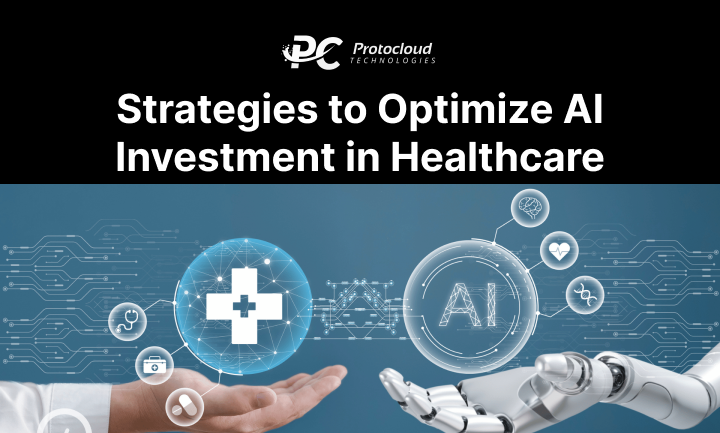
Implementing AI in healthcare can be costly. Costs vary based on infrastructure, development, and maintenance. But innovative strategies can reduce expenses while improving results.
Studies show cloud-based AI solutions can cut infrastructure costs by 40–60%. Using open-source AI tools can lower licensing costs by 30–50%. With the right approach, AI adoption in healthcare can cut costs by 30–50% while improving efficiency and patient care.
Here are key strategies to make AI investments more effective.
1. Use Cloud-Based AI Solutions
Cloud computing in healthcare removes the need for costly hardware. It reduces infrastructure costs in healthcare AI and offers flexible pricing. Cloud AI also allows easy updates and growth.
Benefits:
- Lower upfront costs
- Faster deployment
- Easy scalability
- Reliable performance
For healthcare app development, cloud AI offers speed, efficiency, and cost savings.
2. Use Pre-Trained AI Models
Pre-trained AI models use existing frameworks. This reduces time and costs. They are ideal for diagnostic AI, predictive analytics in healthcare, and healthcare automation.
Advantages:
- Faster delivery
- Lower costs
- Proven technology
- Quick ROI
Examples include symptom checkers, patient triage systems, and diagnostic tools.
3. Partner with AI Vendors and Experts
Partnering with AI vendors in healthcare gives access to advanced technology without heavy upfront costs. This makes deployment faster and easier.
Benefits:
- Expert support
- Lower costs
- Smooth integration
- Shared risk
For healthcare modernization, partnerships help deliver innovation and efficiency.
4. Roll Out AI in Phases with Pilot Programs
Rolling out AI gradually helps control costs and test performance. Pilot programs in healthcare AI let you adjust before full deployment.
Benefits:
- Lower risk
- Better adoption by staff
- Clear ROI
- Improved AI models
Phased implementation is smart for healthcare cost management.
5. Use Open-Source AI Platforms
Platforms like TensorFlow in healthcare and PyTorch in healthcare cut costs. They avoid expensive licenses and offer strong community support.
Benefits:
- Lower costs
- Faster development
- Continuous improvement
- Flexible customization
For healthcare app development, open-source tools make AI faster and cheaper.
6. Focus on ROI-Driven AI Investments
Choose ROI-driven AI investments that:
- Improve healthcare efficiency
- Reduce manual work
- Enhance patient outcomes
- Provide measurable value
Examples:
- Automated patient monitoring
- Predictive analytics
- AI-based diagnostics
- Workflow automation
These investments make AI a strong driver of healthcare innovation.
How Can Protocloud Help You with Healthcare App Development?
How Can Protocloud Help You with Healthcare App Development?
The future of healthcare is digital and patient-focused. Healthcare mobile apps are leading this change. They make remote care, personalized treatment, and data-based decisions easier and faster. From AI-powered diagnostics to real-time patient monitoring and secure data sharing, mobile solutions are changing how care works.
Healthcare mobile application development helps providers work better. It makes operations simple, improves data handling, and improves patient care. These solutions give providers an edge and improve healthcare overall. At Protocloud, we create custom healthcare app development solutions for healthcare needs. From clinical management to patient treatment and diagnosis, we deliver safe, smart, and effective healthcare app solutions that keep providers ahead.

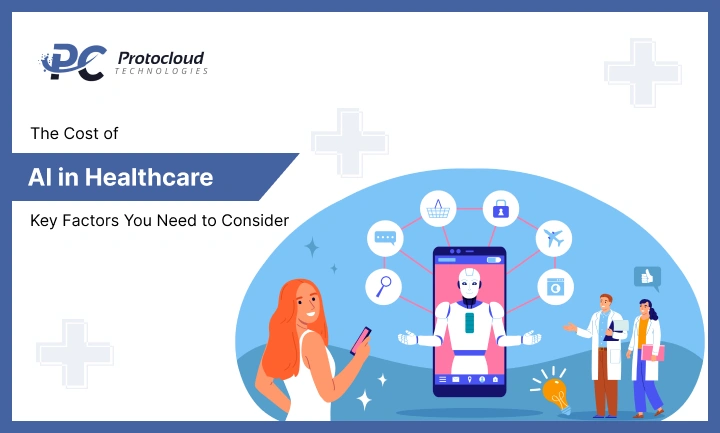



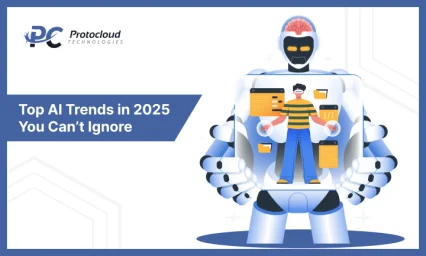
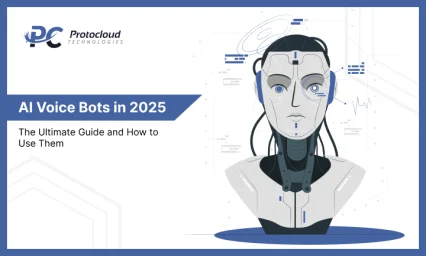

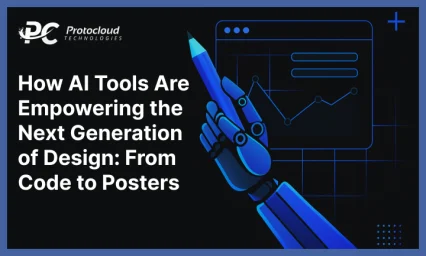








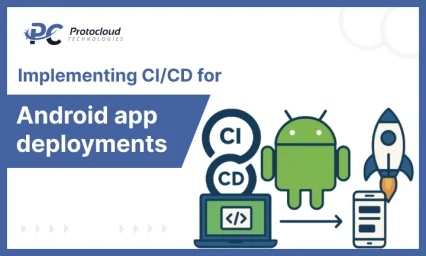
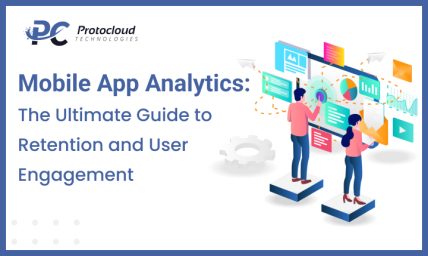



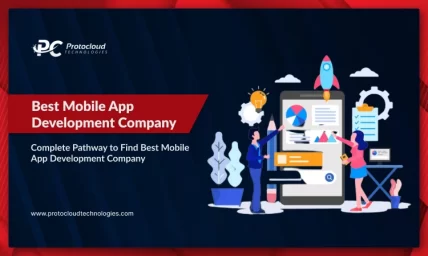












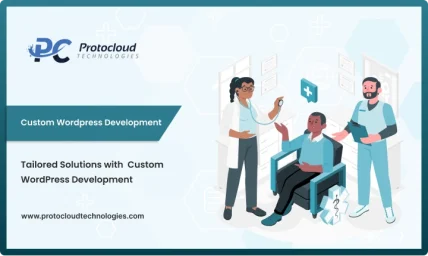

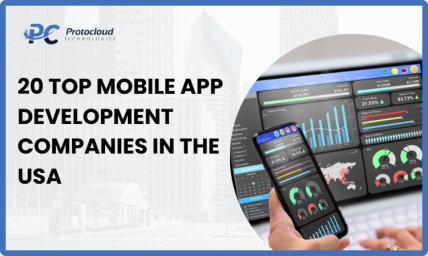
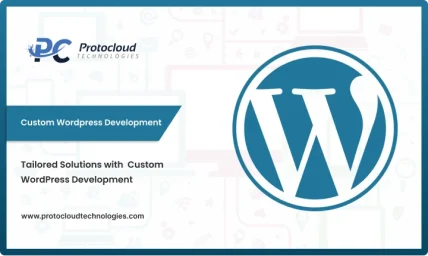

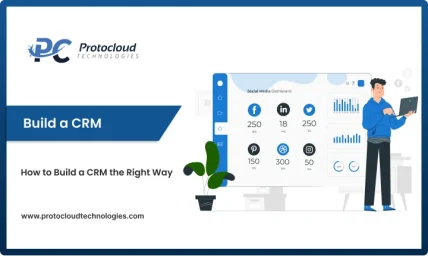

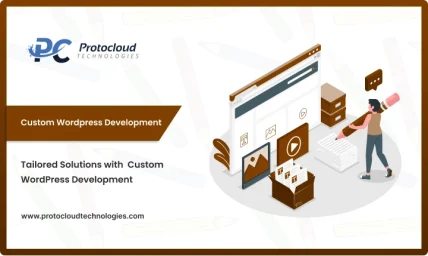
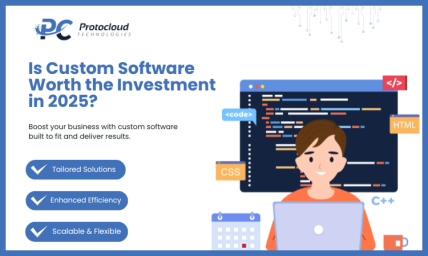


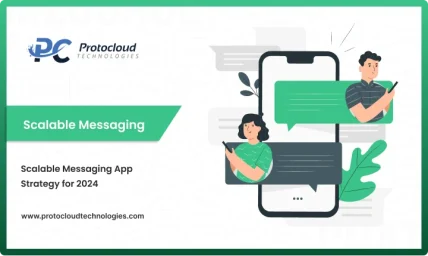







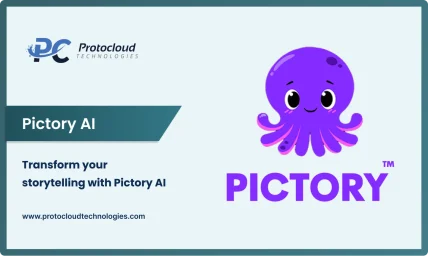


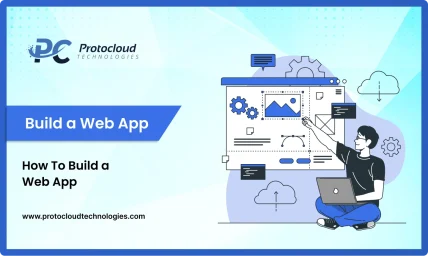





Leave a Reply